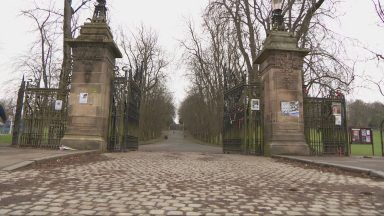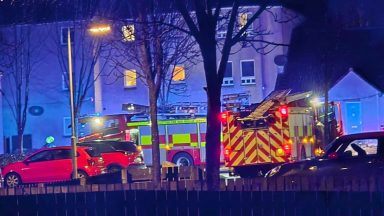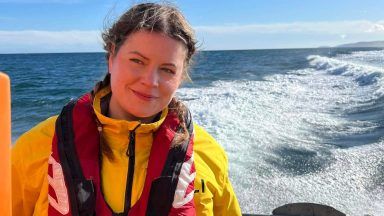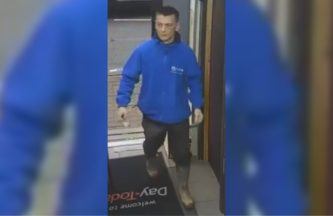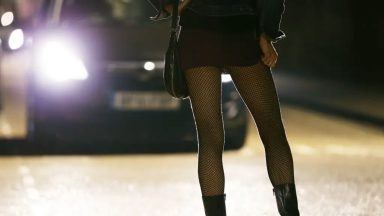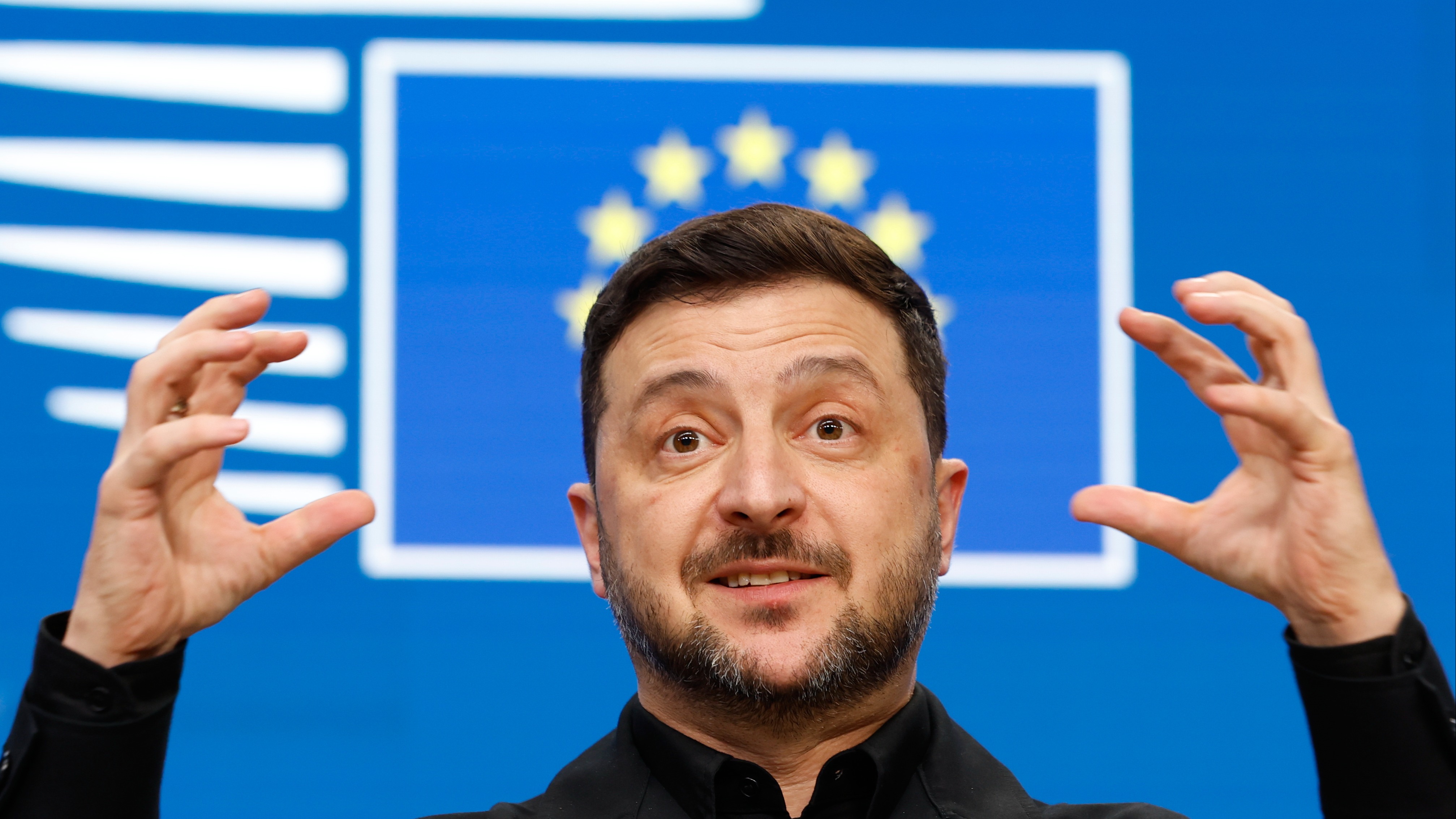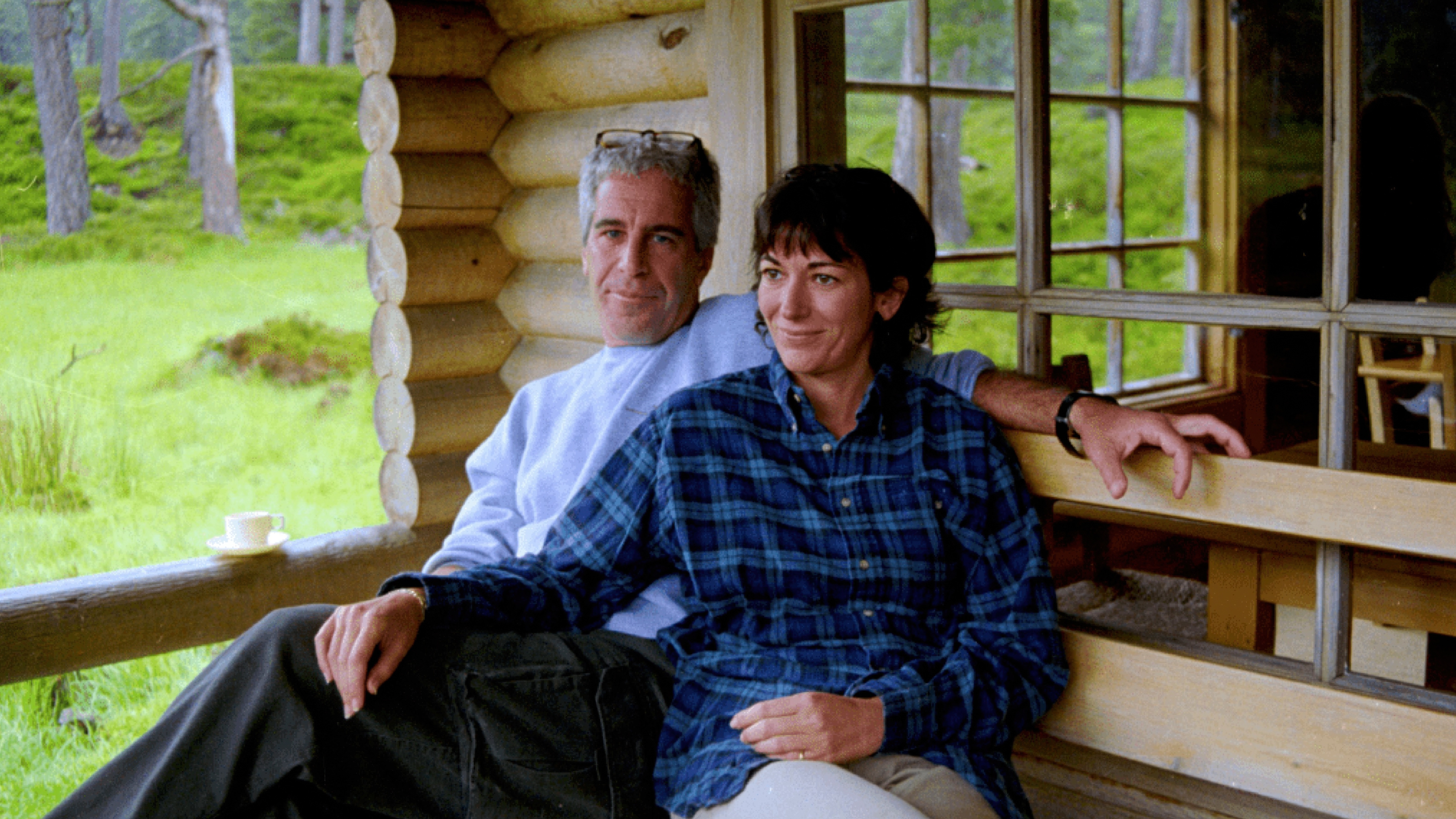A Church of Scotland minister nicknamed the Tartan Pimpernel who helped orchestrate the safe return of around 2000 servicemen from occupied France during the Second World War has been honoured in Paris.
Rev Dr Donald Caskie has been commemorated on a marble plaque erected on the exterior wall of the Scots Kirk where he was the minister 81 years ago.
Around 100 people attended the unveiling ceremony on La Rue Bayard on Thursday, including local church members and representatives from Mairie de Paris (Paris City Hall) and the Scottish Government.
Bagpiper Francis Sykes greeted guests with renditions of Auld Lang Syne, Flower of Scotland, Highland Cathedral, Scotland the Brave and The Skye Boat Song.
Local school pupils read aloud in English and French extracts from Dr Caskie’s book, The Tartan Pimpernel, which tells how he fearlessly worked with the French Resistance to help trapped or imprisoned airmen, seamen and soldiers escape Nazi-occupied France.
The plaque was unveiled by Jeanne d’Hauteserre and Laurence Patrice of Mairie de Paris.
The commemoration project was led by Derek Bonin-Bree, an elder at the Scots Kirk, with the support of other office bearers and minister Rev Jan Steyn, who said the war hero’s faith “spurred him on to oppose injustice, intolerance and tyranny”.
They were supported by the Scottish Government’s office in Paris in their mission to persuade Paris City Hall to allow the installation of a commemorative plaque.
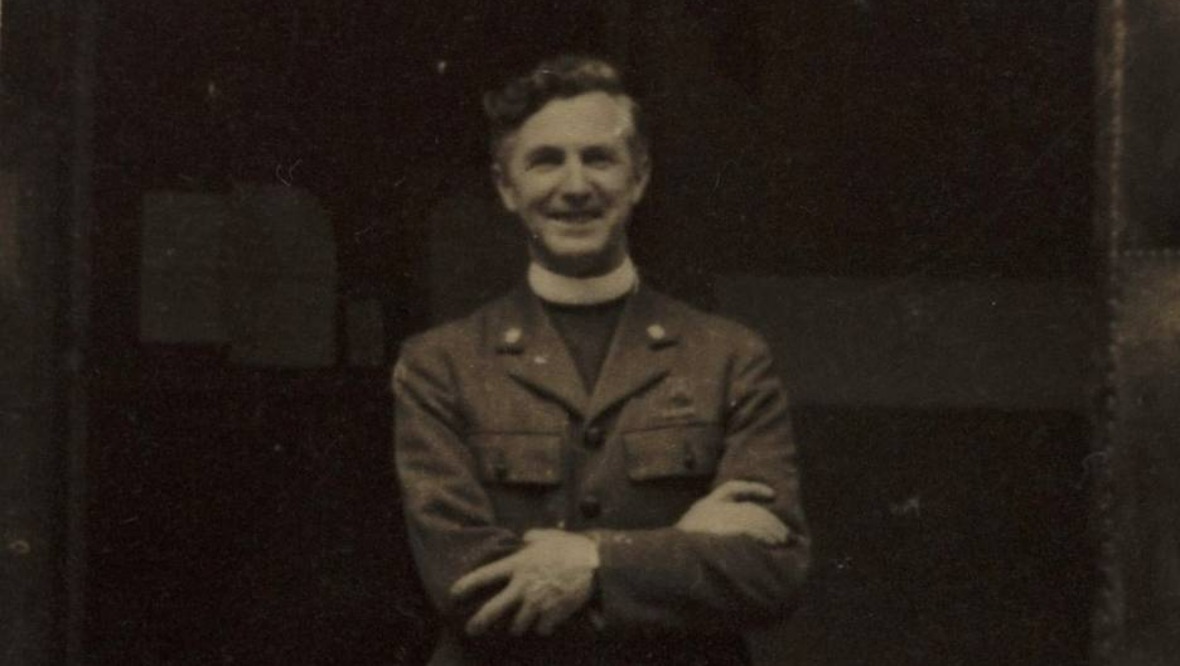 Email
EmailLord Wallace, moderator of the general assembly of the Church of Scotland, was unable to attend the ceremony due to Covid-19 travel restrictions but said that it is a fitting tribute to an “inspirational, distinguished and courageous” man.
Dr Caskie was the minister at the Scots Kirk when the Germans invaded France in 1940 and frequently denounced the Nazis from the pulpit which meant he had more to fear than many after the invasion.
He was repeatedly urged to return home and after the Dunkirk evacuation he locked the church on the 9th of June of that year and joined the mass exodus of Paris, heading south.
The crofter’s son, from the inner Hebridean island of Islay, was said to have had the Celtic gift of second sight, endured weeks of hardship to get to Bayonne but in the end rejected the chance of safe passage on the last ship bound for the UK on the grounds that his place should be given to a wounded man instead.
He walked to a village called Cambo les Bains where he met friends from Paris purely by chance and they drove to the port city of Marseille – leaving just hours before the Germans arrived.
Dr Caskie believed that God had commanded him to stay in France and help stranded British subjects and he was warned that he must only engage with civilians and would be arrested if he assisted servicemen.
He ran a seaman’s mission but was living a double life and secretly helped airmen, seamen and soldiers, under the noses of the Vichy police, escape the country across mountains into Spain or by sea in a submarine or ship.
Dr Caskie, a Gaelic speaker whose codename was Monsieur Le Canard – Donald Duck – was eventually recruited by British intelligence officers and was told that his mission was the last link of a chain of safe houses that they had set up, which stretched from Dunkirk to Marseille.
His main resistance contact was General Sir Albert-Marie Guerisse, codenamed Pat O’Leary who is named on the 58cm x 35cm pink/beige coloured plaque.
There is a ring attached to the wall underneath it for flowers which are placed there every August by the Mairie de Paris in honour of resistance fighters around the date when the city was liberated after three years of occupation.
One of the soldiers Dr Caskie helped was Captain Derek Lang who was captured at St Valery-en-Caux in Normandy along with 10,000 soldiers from the 51st Highland Division, mostly Scots, 81 years ago this weekend.
He managed to escape the Germans and fled to Marseille where he recalled meeting a “courageous and fearless” Church of Scotland minister.
“Evil in war produces heroes and Donald Caskie is one of these,” wrote the army officer in the forward to the Tartan Pimpernel – a book he said moved him to tears.
Captain Lang was spirited out of the country on a ship to Beirut, Lebanon, with the help of the padre and eventually returned to Britain and helped prepare Allied troops for the D-Day landings in 1944.
Not long after the Normandy invasion, he liberated St Valery-en-Caux as the commanding officer of the 5th Cameron Highlanders and later became Lieutenant General Sir Derek Lang, Commander-in Chief Scotland 1966-69 and governor of Edinburgh Castle.
Reflecting on Dr Caskie’s legacy, Mr Steyn said: “We see heroism but he saw his duty as a Christian.
“He helps us renew with strong values of selflessness, kindness and devotion.
“His story still is an inspiration to us all.”
Mr Bonin-Bree said the ceremony was also a chance to pay homage to all involved in the Pat O’Leary resistance network.
“Gathering intelligence, exfiltration actions, giving food and clothes to ragged and starved men were a part of a much bigger scheme, which led to the liberation and closed a dark chapter of World history,” he added.
Lord Wallace revealed that Dr Caskie was one of his heroes when he was at school in Annan, Dumfries and Galloway.
“In my first year at Annan Academy, our rector read extracts from the Tartan Pimpernel at morning assembly,” he recalled.
“The narrative of speaking out against oppression, standing up, in faith, for principles, acts of daring, acts of courage, saving lives, being betrayed and survival ensured that the next instalment was eagerly anticipated.
“Moreover, the catchment area for the school included Gretna, where Donald Caskie had his first charge as a minister.
“He was a man who placed his trust in his Lord and Saviour, a man who refused to take the easy way out, a man who took huge risks to rescue others.
“But I pause to wonder how many young – and not so young – people today know the story of Donald Caskie?
“That is why plaques such as this one and this ceremony today organised by the Mairie de Paris are so important if we are to recognise and keep alive the memory of such selfless fortitude.
“And at home in Scotland, we should reflect on what more we need to do keep such memory alive.”
Lord Wallace said Dr Caskie and the Kirk missionary Jane Haining, who died in Auschwitz after refusing to abandon Jewish school girls in her care at the Scottish Mission in Budapest, Hungary, were driven by their faith and prepared to “risk all in such loving and dangerous service”.
Several events were held this week by the Scots Kirk to honour Dr Caskie, who was nicknamed the Tartan Pimpernel by the BBC.
There is a permanent exhibition about the minister inside the building and his Gaelic Bible is on display, gifted by his nephew Tom Caskie.
Commenting on the new plaque, the Edinburgh man said: “I am proud that the Scots parishioners of Paris continue to honour my uncle, a peaceful, loving and heroic Scot in France during the Second World War.
“I remember his quiet highland voice telling us ghost stories as we grew up in the early years after the war.
“A gentle voice but one of Scotland’s great heroes.”
Dr Caskie was eventually arrested and imprisoned by the Gestapo and sentenced to death.
His life was only saved through the intervention of a German pastor and he spent the rest of the war in a Prisoner of War camp.
Dr Caskie returned to Scotland after a spell in Paris and died in 1983 at the age of 81 and is buried at Bowmore on Islay.
Follow STV News on WhatsApp
Scan the QR code on your mobile device for all the latest news from around the country


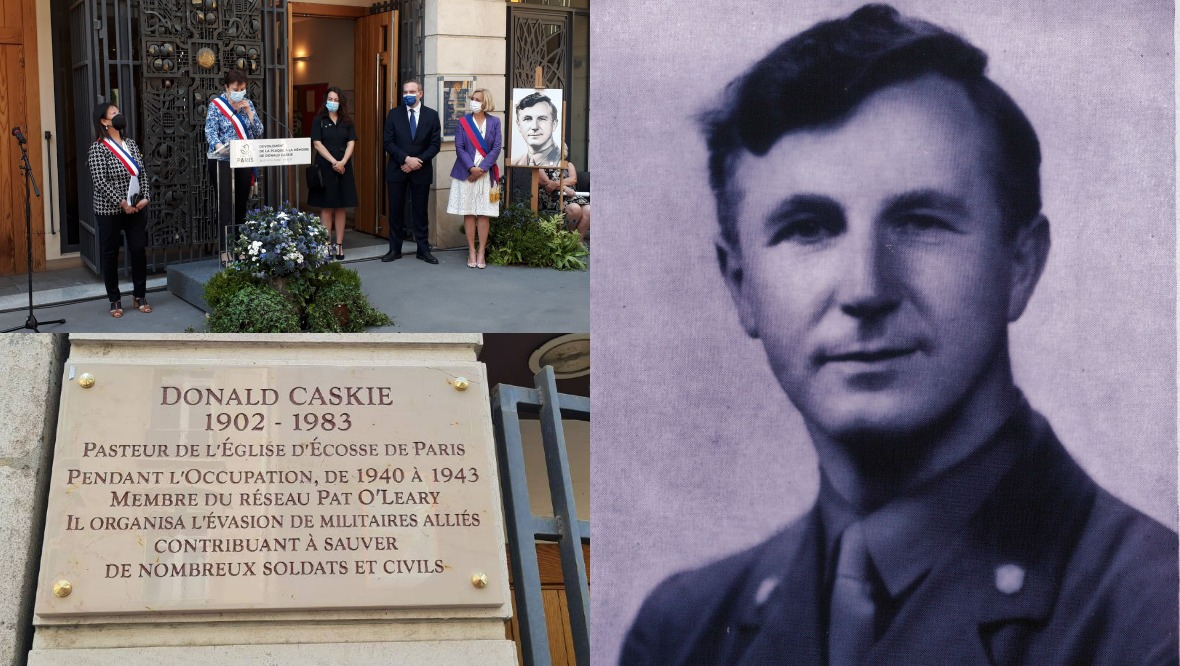 Email
Email



